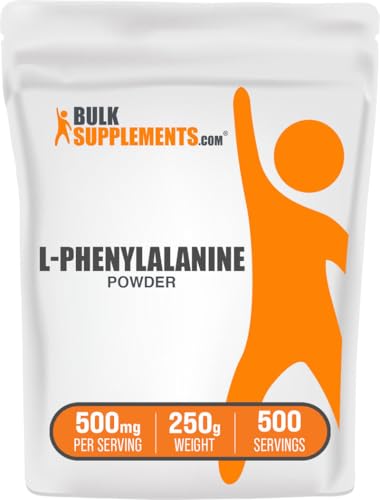PKU Diet Guide: Managing Phenylalanine Intake
Quick Summary: This research provides a practical guide for managing phenylalanine (Phe) intake for people with Phenylketonuria (PKU). It helps healthcare professionals create personalized diet plans, including limiting Phe-rich foods and using special medical foods.
What The Research Found
This study isn't a new experiment, but a helpful handbook. It supports the 2017 European PKU Guidelines, offering practical advice on how to manage PKU through diet. The main focus is on controlling phenylalanine levels through a carefully planned diet. This includes limiting foods high in phenylalanine and using special medical foods.
Study Details
- Who was studied: People with PKU of all ages.
- How long: The research is based on existing guidelines, not a new study over time.
- What they took: The handbook focuses on dietary strategies, not specific medications. It recommends:
- Limiting natural protein intake (found in foods like meat and dairy).
- Using medical foods, which are protein substitutes that are low in phenylalanine.
- Considering tyrosine supplements, which may be needed because the body can't make enough tyrosine.
What This Means For You
If you have PKU, this research highlights the importance of a carefully managed diet. Here's what you should know:
- Work with a healthcare professional: They can help you create a personalized diet plan.
- Limit high-phenylalanine foods: This includes foods like meat, dairy, and some artificial sweeteners.
- Use medical foods as prescribed: These are essential to get the nutrients you need without too much phenylalanine.
- Regular blood tests are key: This helps your doctor monitor your phenylalanine levels and adjust your diet as needed.
Study Limitations
- Not a new study: The handbook is based on existing guidelines and expert opinions, not new research.
- General recommendations: The dietary advice may need to be adjusted based on your individual needs and resources.
- Relies on expert opinion: Some recommendations are based on what experts think is best, not always on hard data.
Technical Analysis Details
Key Findings
This 2020 observational study provides a practical dietary handbook to support the 2017 European PKU Guidelines. It emphasizes individualized dietary plans to manage phenylalanine (Phe) intake, including restrictions, medical food supplementation, and tyrosine recommendations. The authors conclude that the handbook is a valuable tool for healthcare professionals to optimize Phe control across all age groups, though no new empirical data or quantitative outcomes are presented.
Study Design
The study is a supplementary manuscript to the 2017 European PKU Guidelines, classified as an observational study. It synthesizes evidence-based practices and expert consensus to guide dietary treatment. No primary data collection, sample size, or duration metrics are reported, as the focus is on summarizing existing recommendations rather than conducting original research.
Dosage & Administration
The handbook does not propose specific dosages but outlines dietary strategies to limit Phe intake:
- Natural protein restriction: Tailored to patient age and metabolic tolerance.
- Medical foods: Phe-free protein substitutes (e.g., amino acid formulas) to meet nutritional needs.
- Tyrosine supplementation: Considered for patients with insufficient tyrosine production.
Dietary adjustments are based on regular blood Phe monitoring and individual response.
Results & Efficacy
As a guideline companion, this study does not report statistical outcomes (e.g., p-values, confidence intervals) or effect sizes. Its efficacy is inferred from the 2017 guidelines, which demonstrated improved metabolic control and neurocognitive outcomes in PKU patients under structured dietary management. The handbook’s role is to standardize practical implementation of these strategies.
Limitations
- Lack of original data: The analysis relies on prior guidelines and expert opinion rather than new empirical evidence.
- Observational constraints: No controlled trials or patient cohorts were studied directly.
- Generalizability: Dietary recommendations may require adaptation based on regional resources or patient adherence.
- Bias risk: Expert consensus could reflect subjective interpretations over objective data.
Future research should validate specific dietary protocols through longitudinal studies and patient-reported outcomes.
Clinical Relevance
For PKU patients, this handbook underscores the necessity of strict Phe monitoring and personalized dietary intervention. Healthcare providers can use it to:
- Initiate low-Phe diets promptly post-diagnosis.
- Adjust protein intake using medical foods to prevent deficiency.
- Address challenges in pediatric, adult, and pregnant populations.
While not a supplement study, it highlights that dietary management—not phenylalanine supplementation—is critical for preventing PKU-related complications (e.g., neurological damage). Patients must avoid high-Phe foods (e.g., meat, dairy) and adhere to prescribed medical formulas. The guide’s practical framework may improve long-term adherence and outcomes but requires further validation in diverse clinical settings.
Note: This analysis is limited to the study’s descriptive content, as no quantitative results or statistical analyses are presented in the manuscript.
Original Study Reference
PKU dietary handbook to accompany PKU guidelines.
Source: PubMed
Published: 2020
📄 Read Full Study (PMID: 32605583)




